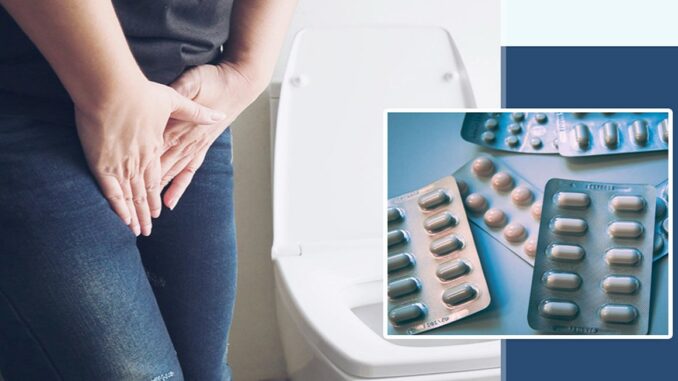
In order to prevent the growth of specific bacteria in urine, Methenamine hippurate is an antibacterial medication. Additional studies show it may help prevent UTIs, but the data is still equivocal and further randomised trials are necessary.
Preventive (prophylactic) daily low dose antibiotics are recommended by current guidelines for recurring UTIs.

Although long-term usage of antibiotics has been linked to the development of antibiotic resistance, new non-antibiotic treatments are desperately needed.
In order to prevent the growth of specific bacteria in urine, Methenamine hippurate is an antibacterial medication. Although previous studies have showed that it may help prevent UTIs, there is a lack of evidence and further randomised trials are needed to confirm this.
Also Read: Pain Management Therapeutics Market – Analysis, Size, Growth, and Segments
Scientists and physicians from Newcastle-upon-Tyne, UK, led an investigation to see if methenamine hippurate, an antibiotic alternative, could help women avoid recurrent urinary tract infections (UTIs).
Recurring urinary tract infections necessitated the use of preventive therapy in 240 women (aged 18 or older). This group of women had an average of six UTIs per year prior to trial entry.
As of June 2016, a random sample of 102 women received daily antibiotics for a year, while 103 received methenamine hippurate every day, for a year and a half, with three monthly assessments for the duration of the study.
After a series of patient focus groups, the non-inferiority margin was identified as a difference of one UTI per year.
UTI events per person-year were 0.89 in the antibiotic group and 1.38 in the methenamine group during the 12-month treatment period, a difference of 0.49 episodes per person-year in absolute terms.
Methenamine and antibiotics had the same annual number of UTIs, indicating that there was no statistically significant difference between the two treatments when it came to UTI prevention.
When compared to daily antibiotics, a lower dose of phenamine was associated with fewer side effects and equivalent levels of treatment satisfaction and adverse responses.
In addition, the findings were consistent even after further analyses, such as eliminating days when the participants were receiving medication for a urinary tract infection.
Data on methenamine hippurate’s potential long-term health effects are rare, and the researchers acknowledge significant study limitations, including blinding and differences in antibiotic use.
Four participants assigned to methenamine hippurate were hospitalised for UTIs, while six participants assigned to methenamine hippurate experienced fever during a UTI episode (febrile UTI).
In spite of this, they argue that this was a well-designed study that correctly reflected the wide spectrum of women with recurrent UTIs that are commonly encountered in ordinary NHS treatment.
These findings “could support a change in practise in terms of prevention treatments for recurrent UTI and provide patients and clinicians with a credible alternative to daily antibiotic, giving them confidence to pursue strategies that avoid long-term antibiotic use,” according to the researchers’ conclusion.
These results “may encourage patients and doctors to consider methenamine hippurate as a first-line therapy for UTI prevention in women,” the researchers concluded later.

According to a member of the Royal Pharmaceutical Society’s Antimicrobial Resistance (AMR) expert advisory group and a professor of bacteriology, trimethoprim and nitrofurantoin were used to treat women’s urinary tract infections (UTIs) “many years ago” because of AMR resistance.
The true level of AMR in nitrofurantoin, trimethoprim, or cefalexin is unknown because there is no community-wide sentinel surveillance for UTI AMR in England, he said.
To prevent UTIs from recurring, on of the member of AMR Howard says the National Institute for Health and Care Excellence (NICE) has recommended alternatives to the use of daily antibiotics, which should be reevaluated at least once every six months.
No recommendation was made for methenamine by the National Institute for Health and Care Excellence (NICE) since continuous antibiotics performed better and caused less harm. Despite the fact that prophylactic antibiotics are still superior to methenamine, this investigation found that both groups experienced identical adverse effects.
